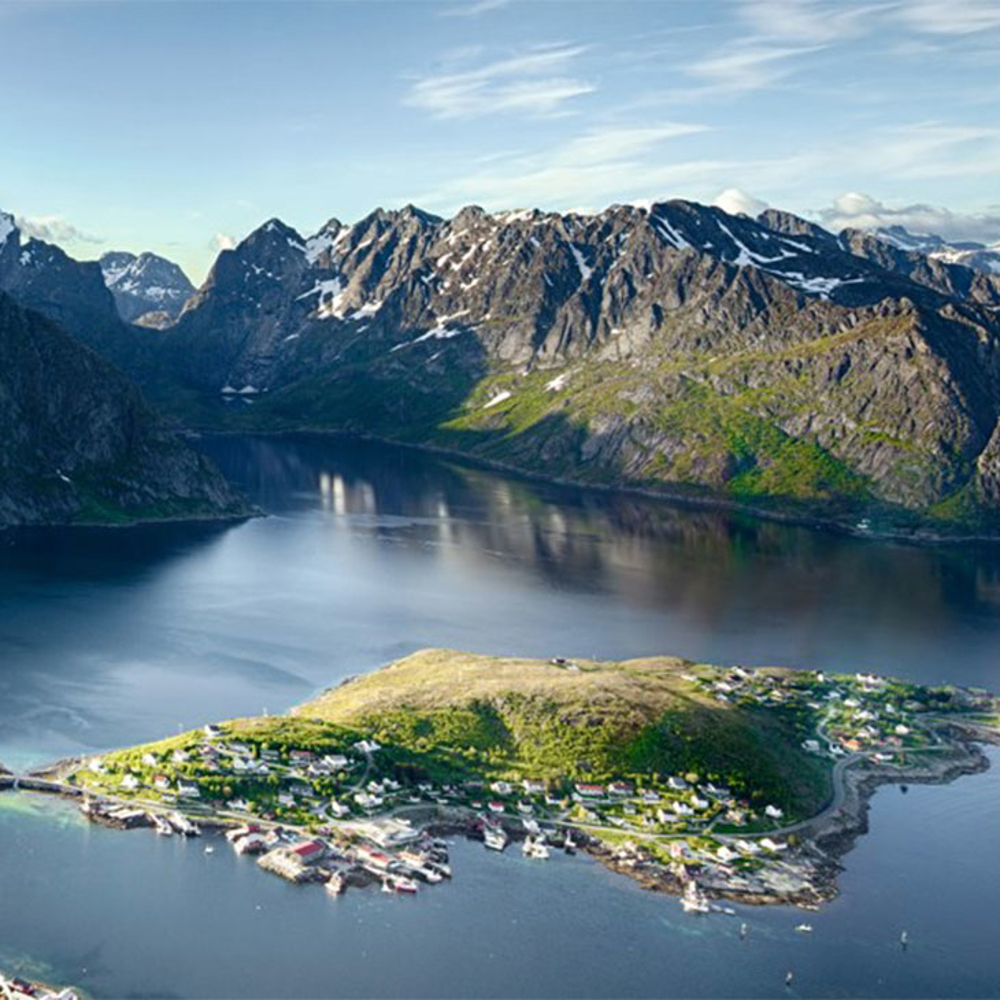This year at Nor-Shipping, we are reflecting on LR's history in Norway and looking to the future, as we celebrate 150 years of operation in the country.
This year’s Nor-Shipping is of particular significance to Lloyd’s Register. In 2022, LR is celebrating 150 years of operation in Norway, providing ship classification, statutory certification and a broad range of other maritime services.
“Norway has always been a great maritime nation, pre-eminent in its involvement in the exploration, production and carriage of oil and gas but also in its use of innovative technology and care for the environment,” said Markus Büsig, LR's Marine & Offshore President for North Europe.
“We are honoured to have enjoyed such a long and fruitful partnership with the Norwegian maritime industry and we look forward to continuing that journey together as trusted partners addressing the very many challenges that decarbonisation is bringing,” Büsig added.
An example of a project that is addressing such challenges is With Orca, a Norwegian zero-emission bulk carrier that LR awarded Approval in Principle to earlier this year. Shipowner Egil Ulvan Rederi’s vessel will be unique in employing a variety of different technologies to ensure zero emissions in all operational modes.
With Orca will be powered by hydrogen stored onboard in compressed form, as well as having a hydrogen fuel cell system for operations in low load conditions. In addition, two large rotor sails will be used to harness wind energy, while the vessel will also be fitted with batteries to be able to store excess energy.
LR was chosen for the project because of its constructive, risk based, approach to classifying new technologies and its experience and expertise with hydrogen and projects using novel fuels, many of which have involved Norwegian industry. For example, the world’s first LNG dual-fuelled car carrier delivered to Norway- and Japan-based United European Car Carriers (UECC) back in 2016, was constructed to LR class.
LR has a long history of working in offshore environments – initially in maritime, marine oil and gas and more recently renewables – in recognition of which the Norwegian Maritime Authority (NMA) approved LR as a recognised class society for verification activity on mobile units engaged in petroleum services on the Norwegian Continental Shelf (NCS) as soon as domestic oil industry regulations allowed the same.
Digitalisation has been another area of fruitful collaboration with Norwegian industry, LR having classed environmental pioneer Wallenius Wilhelmsen’s highly energy efficient 2019 vessel Traviata, one of the early exponents of using comprehensive data analysis for operational optimisation.
Indeed, innovation and use of new technologies have been at the heart of LR’s collaborative efforts in Norway since the outset. In 1872, when LR first opened an office in Bergen after having already enjoyed a long association with Norway, it was largely to transition from wooden ships to iron/steel ships and provide local ship owners with expertise in the new use of iron – and subsequently steel – in ship structures for seagoing vessels. Three years later, the first iron sailing vessel commissioned by Norwegian owners, the 1,200 gt Europa, was built to LR class in Glasgow.
Shipyards based in and around Bergen and other Norwegian coastal towns were meanwhile beginning to make use of LR rules for iron ships that had been in 1855, and later steel ones in 1888. A 3,085 gt steel ship, the Baghdad, was built at Nylands to LR class for DS Bogstad, with Fearnley & Eger acting as the ship’s manager.
After WWI, steam increasingly replaced sail and LR classed the first steam tanker built for a Norwegian owner, the Conrad Mohr, to transport oil from the USA to Norway, in 1909. The society also began a long relationship with what was soon to become Norway’s largest owner in this field, Wilhelm Wilhelmsen, classing its first tanker, the 10,360 dwt San Joaquin, delivered in 1913.
During WW2 and for almost a decade afterwards, LR was delegated the responsibility of surveying the entire free Norwegian fleet that was sailing internationally, based on its longstanding links with the nation’s shipping industry. In 1965 the inaugural meeting of LR’s Norwegian Committee was held.
From the late 1960s onwards, as Norway itself discovered oil and her offshore and tanker fleets expanded, LR’s activities in the country continued to grow in parallel. Today the society is represented across the country, in Bergen, Haugesund, Oslo Stavanger and Ålesund.






